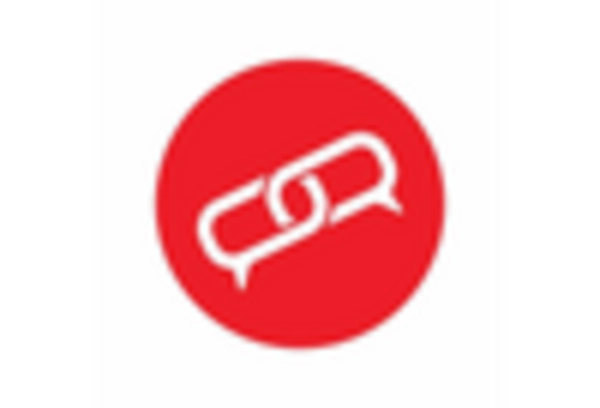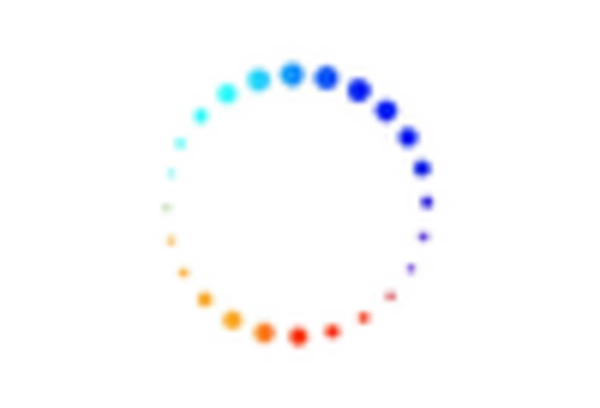Recombinant/Conjugate/Subunit
Inactivated
Live Attenuated
Toxoid
Parenteral
Oral
Viral Diseases
Bacterial Diseases
Pediatric
Adults
Hospital & Retail Pharmacies
Government Suppliers
Others
Vaccine Technologies Market by TypeRecombinant/Conjugate/Subunit
Inactivated
Live Attenuated
Toxoid
Vaccine Technologies Market by Route of AdministrationParenteral
Oral
Vaccine Technologies Market by Disease IndicationViral Diseases
Bacterial Diseases
Vaccine Technologies Market by Age GroupPediatric
Adults
Vaccine Technologies Market by Distribution ChannelHospital & Retail Pharmacies
Government Suppliers
Others
Vaccine Technologies Market by TypeRecombinant/Conjugate/Subunit
Inactivated
Live Attenuated
Toxoid
Vaccine Technologies Market by Route of AdministrationParenteral
Oral
Vaccine Technologies Market by Disease IndicationViral Diseases
Bacterial Diseases
Vaccine Technologies Market by Age GroupPediatric
Adults
Vaccine Technologies Market by Distribution ChannelHospital & Retail Pharmacies
Government Suppliers
Others
Vaccine Technologies Market by TypeRecombinant/Conjugate/Subunit
Inactivated
Live Attenuated
Toxoid
Vaccine Technologies Market by Route of AdministrationParenteral
Oral
Vaccine Technologies Market by Disease IndicationViral Diseases
Bacterial Diseases
Vaccine Technologies Market by Age GroupPediatric
Adults
Vaccine Technologies Market by Distribution ChannelHospital & Retail Pharmacies
Government Suppliers
Others
Vaccine Technologies Market by TypeRecombinant/Conjugate/Subunit
Inactivated
Live Attenuated
Toxoid
Vaccine Technologies Market by Route of AdministrationParenteral
Oral
Vaccine Technologies Market by Disease IndicationViral Diseases
Bacterial Diseases
Vaccine Technologies Market by Age GroupPediatric
Adults
Vaccine Technologies Market by Distribution ChannelHospital & Retail Pharmacies
Government Suppliers
Others
Germany Outlook (USD Billion, 2018-2032)
Vaccine Technologies Market by TypeRecombinant/Conjugate/Subunit
Inactivated
Live Attenuated
Toxoid
Vaccine Technologies Market by Route of AdministrationParenteral
Oral
Vaccine Technologies Market by Disease IndicationViral Diseases
Bacterial Diseases
Vaccine Technologies Market by Age GroupPediatric
Adults
Vaccine Technologies Market by Distribution ChannelHospital & Retail Pharmacies
Government Suppliers
Others
Vaccine Technologies Market by TypeRecombinant/Conjugate/Subunit
Inactivated
Live Attenuated
Toxoid
Vaccine Technologies Market by Route of AdministrationParenteral
Oral
Vaccine Technologies Market by Disease IndicationViral Diseases
Bacterial Diseases
Vaccine Technologies Market by Age GroupPediatric
Adults
Vaccine Technologies Market by Distribution ChannelHospital & Retail Pharmacies
Government Suppliers
Others
Vaccine Technologies Market by TypeRecombinant/Conjugate/Subunit
Inactivated
Live Attenuated
Toxoid
Vaccine Technologies Market by Route of AdministrationParenteral
Oral
Vaccine Technologies Market by Disease IndicationViral Diseases
Bacterial Diseases
Vaccine Technologies Market by Age GroupPediatric
Adults
Vaccine Technologies Market by Distribution ChannelHospital & Retail Pharmacies
Government Suppliers
Others
Vaccine Technologies Market by TypeRecombinant/Conjugate/Subunit
Inactivated
Live Attenuated
Toxoid
Vaccine Technologies Market by Route of AdministrationParenteral
Oral
Vaccine Technologies Market by Disease IndicationViral Diseases
Bacterial Diseases
Vaccine Technologies Market by Age GroupPediatric
Adults
Vaccine Technologies Market by Distribution ChannelHospital & Retail Pharmacies
Government Suppliers
Others
Vaccine Technologies Market by TypeRecombinant/Conjugate/Subunit
Inactivated
Live Attenuated
Toxoid
Vaccine Technologies Market by Route of AdministrationParenteral
Oral
Vaccine Technologies Market by Disease IndicationViral Diseases
Bacterial Diseases
Vaccine Technologies Market by Age GroupPediatric
Adults
Vaccine Technologies Market by Distribution ChannelHospital & Retail Pharmacies
Government Suppliers
Others
Vaccine Technologies Market by TypeRecombinant/Conjugate/Subunit
Inactivated
Live Attenuated
Toxoid
Vaccine Technologies Market by Route of AdministrationParenteral
Oral
Vaccine Technologies Market by Disease IndicationViral Diseases
Bacterial Diseases
Vaccine Technologies Market by Age GroupPediatric
Adults
Vaccine Technologies Market by Distribution ChannelHospital & Retail Pharmacies
Government Suppliers
Others
Vaccine Technologies Market by TypeRecombinant/Conjugate/Subunit
Inactivated
Live Attenuated
Toxoid
Vaccine Technologies Market by Route of AdministrationParenteral
Oral
Vaccine Technologies Market by Disease IndicationViral Diseases
Bacterial Diseases
Vaccine Technologies Market by Age GroupPediatric
Adults
Vaccine Technologies Market by Distribution ChannelHospital & Retail Pharmacies
Government Suppliers
Others
Vaccine Technologies Market by TypeRecombinant/Conjugate/Subunit
Inactivated
Live Attenuated
Toxoid
Vaccine Technologies Market by Route of AdministrationParenteral
Oral
Vaccine Technologies Market by Disease IndicationViral Diseases
Bacterial Diseases
Vaccine Technologies Market by Age GroupPediatric
Adults
Vaccine Technologies Market by Distribution ChannelHospital & Retail Pharmacies
Government Suppliers
Others
Vaccine Technologies Market by TypeRecombinant/Conjugate/Subunit
Inactivated
Live Attenuated
Toxoid
Vaccine Technologies Market by Route of AdministrationParenteral
Oral
Vaccine Technologies Market by Disease IndicationViral Diseases
Bacterial Diseases
Vaccine Technologies Market by Age GroupPediatric
Adults
Vaccine Technologies Market by Distribution ChannelHospital & Retail Pharmacies
Government Suppliers
Others
Vaccine Technologies Market by TypeRecombinant/Conjugate/Subunit
Inactivated
Live Attenuated
Toxoid
Vaccine Technologies Market by Route of AdministrationParenteral
Oral
Vaccine Technologies Market by Disease IndicationViral Diseases
Bacterial Diseases
Vaccine Technologies Market by Age GroupPediatric
Adults
Vaccine Technologies Market by Distribution ChannelHospital & Retail Pharmacies
Government Suppliers
Others
Vaccine Technologies Market by TypeRecombinant/Conjugate/Subunit
Inactivated
Live Attenuated
Toxoid
Vaccine Technologies Market by Route of AdministrationParenteral
Oral
Vaccine Technologies Market by Disease IndicationViral Diseases
Bacterial Diseases
Vaccine Technologies Market by Age GroupPediatric
Adults
Vaccine Technologies Market by Distribution ChannelHospital & Retail Pharmacies
Government Suppliers
Others
Vaccine Technologies Market by TypeRecombinant/Conjugate/Subunit
Inactivated
Live Attenuated
Toxoid
Vaccine Technologies Market by Route of AdministrationParenteral
Oral
Vaccine Technologies Market by Disease IndicationViral Diseases
Bacterial Diseases
Vaccine Technologies Market by Age GroupPediatric
Adults
Vaccine Technologies Market by Distribution ChannelHospital & Retail Pharmacies
Government Suppliers
Others
Vaccine Technologies Market by TypeRecombinant/Conjugate/Subunit
Inactivated
Live Attenuated
Toxoid
Vaccine Technologies Market by Route of AdministrationParenteral
Oral
Vaccine Technologies Market by Disease IndicationViral Diseases
Bacterial Diseases
Vaccine Technologies Market by Age GroupPediatric
Adults
Vaccine Technologies Market by Distribution ChannelHospital & Retail Pharmacies
Government Suppliers
Others
Vaccine Technologies Market by TypeRecombinant/Conjugate/Subunit
Inactivated
Live Attenuated
Toxoid
Vaccine Technologies Market by Route of AdministrationParenteral
Oral
Vaccine Technologies Market by Disease IndicationViral Diseases
Bacterial Diseases
Vaccine Technologies Market by Age GroupPediatric
Adults
Vaccine Technologies Market by Distribution ChannelHospital & Retail Pharmacies
Government Suppliers
Others
Vaccine Technologies Market by TypeRecombinant/Conjugate/Subunit
Inactivated
Live Attenuated
Toxoid
Vaccine Technologies Market by Route of AdministrationParenteral
Oral
Vaccine Technologies Market by Disease IndicationViral Diseases
Bacterial Diseases
Vaccine Technologies Market by Age GroupPediatric
Adults
Vaccine Technologies Market by Distribution ChannelHospital & Retail Pharmacies
Government Suppliers
Others
Vaccine Technologies Market by TypeRecombinant/Conjugate/Subunit
Inactivated
Live Attenuated
Toxoid
Vaccine Technologies Market by Route of AdministrationParenteral
Oral
Vaccine Technologies Market by Disease IndicationViral Diseases
Bacterial Diseases
Vaccine Technologies Market by Age GroupPediatric
Adults
Vaccine Technologies Market by Distribution ChannelHospital & Retail Pharmacies
Government Suppliers
Others


















Leave a Comment